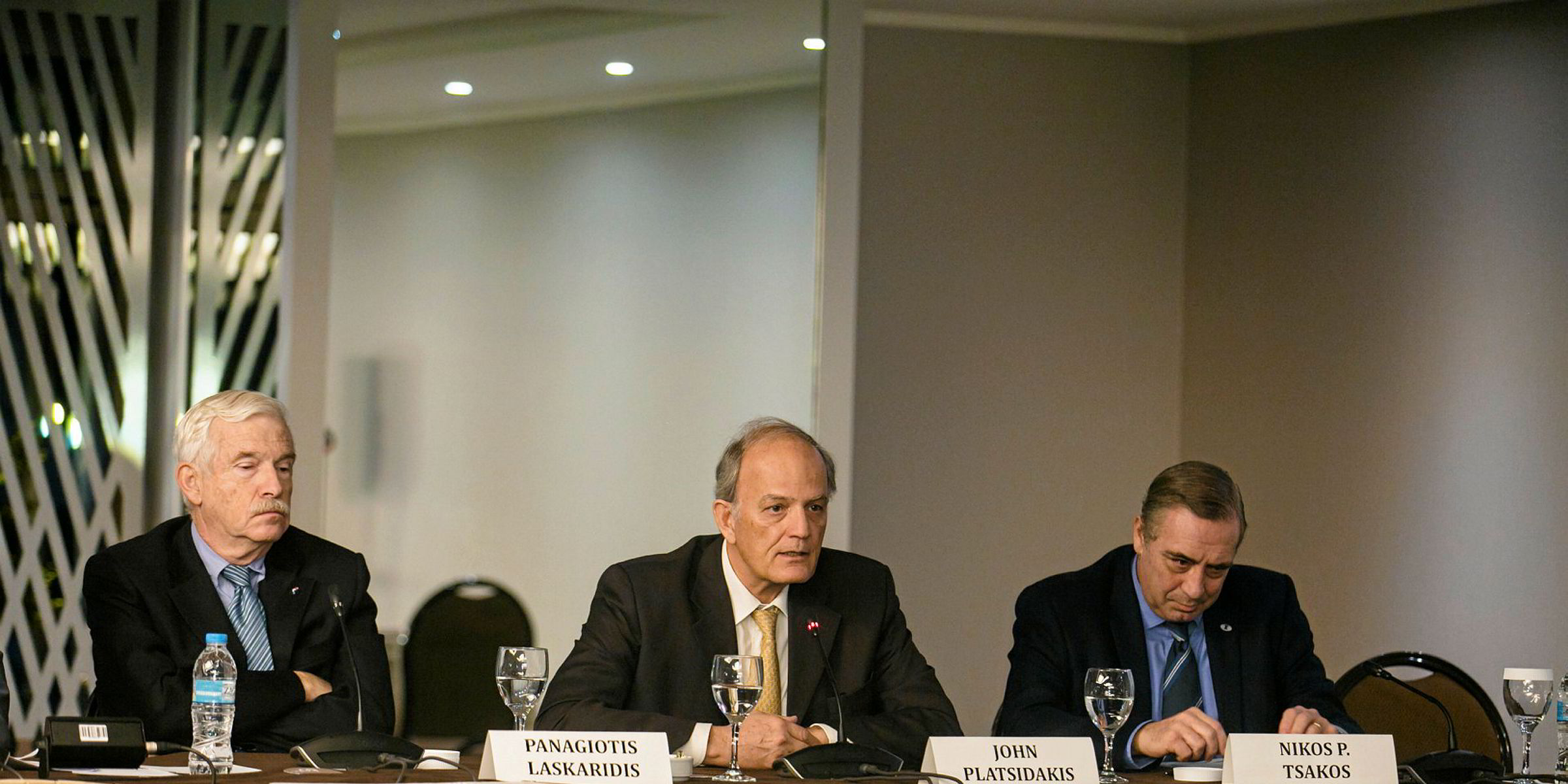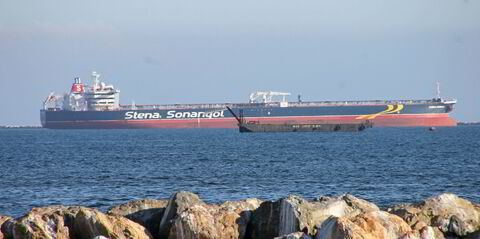Shipping should be looking into slow steaming as a realistic way to cut its carbon emissions, rather than promising “miracles” that cannot be fulfilled, the Greek heads of three major international shipping organisations told a conference in Athens.
“We have to look for quite radical solutions. We have to discuss things which so far have not been discussed in depth — speed reduction is one of them,” said Panos Laskaridis, president of the European Community Shipowners' Associations (ECSA).
Speaking at the Ninth Annual Capital Link Greek Shipping forum in Athens, Laskaridis admitted slow steaming was a “complicated issue” that would meet resistance from shippers and may even hurt some shipowners.
However, the main question, was how to turn the slow-speed concept into a commercially viable proposition.
“If somebody wants to go with super-fast speed, he has to pay more than someone who can live with a lower speed,” Laskaridis said.
Nikolas Tsakos, chairman of independent tanker owners' association Intertanko, agreed. He said: “Speed control or slow steaming is a way to reduce our environmental footprint and we should look into it.”
John Platsidakis, chairman of dry bulk shipowners’ association Intercargo, struck a somewhat more reserved note.

While he agreed slow steaming “sounded good” because lower the speeds would produce less production of CO2, he cautioned that it could backfire as more ships might be needed to facilitate the same volume of trade.
“I don’t know what the end result would be,” Platsidakis said.
However, all three shipping association heads said slow-steaming was a more practical way to cope with environmental regulations, compared with other measures being proposed by politicians and regulators.
Shipping issues “get fumbled” by “public opinion and inept politicians” who view environmental issues as an “easy vote-catching exercise”, complained Laskaridis, co-chief executive of reefer and bulker company Lavinia Corp.
“We feel the responsibility. We want to contribute but we won’t go for daydreaming or promises that can’t be fulfilled, or promise miracles which are never going to happen,” he added.
The take-up of scrubbers has so far been far below expectations and low-sulphur fuel will not be available in commercially sufficient quantities by a 2020 deadline, the panel said.
Platsidakis held up the 2020 deadline as a prime example of politicians unfairly putting the onus of compliance on shipping companies.
“If governments really want to find a quick and practical way out, it is to make it obligatory for their local refiners to make it [low-sulphur fuel] available. And then, we will oblige,” said Platsidakis, who is also managing director of John Angelicoussis dry bulk company Anangel Maritime Services.
Facing criticism that the world’s major shipping organisations are not proactive enough in proposing ways to contribute against global warming, Platsidakis said shipping has no reason to be proactive when it has to deal with people unwilling to give it a fair hearing.
He added shipping had a low profile in the economies of the developed world, so there was little understanding of industry among the public, governments and regulators.
“We have to be proactive only in this respect: to try to explain what shipping is doing,” Platsidakis said.



